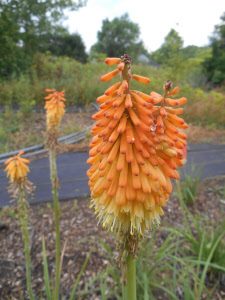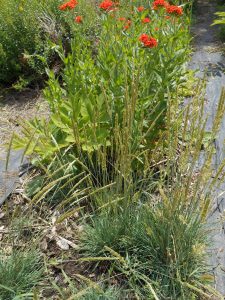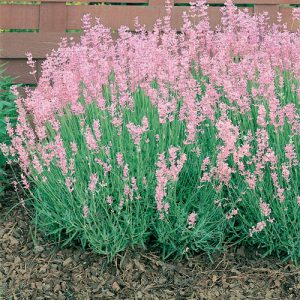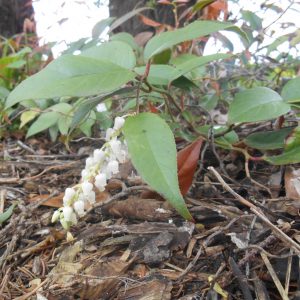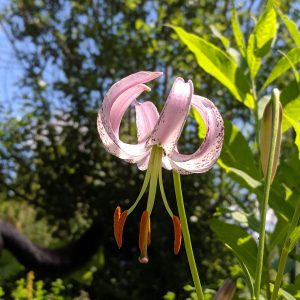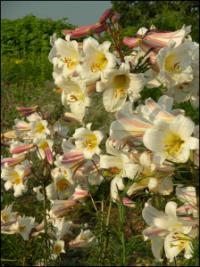Archives
Showing 105–112 of 199 results
-
Kniphofia uvaria Red hot poker, Torch lily Z 5-10
Vibrant red and yellow spikes of tube-shaped flowers
ARCHIVED
Note: This is a plant not currently for sale. This is an archive page preserved for informational use.
Vibrant red and yellow spikes of tube-shaped flowers in early summer arise on leafless stems (called a scape) from a basal clump of strap-like leaves
Size: 2-3’ x 12-15”
Care: sun in moist well-drained to well-drained soil
Native: South Africa
Wildlife Value: deer & rabbit resistant, attracts hummingbirdsIntroduced to English gardens c. 1700 and called Alöe uvaria then renamed by English botanist Wm. Jackson Hooker. The Gardeners Dictionary (1783): “The flowers are produced in close thick spikes, upon stalks near three feet high, They are of an Orange colour…” Illustrated in Curtis’ Botanical Garden 80 (1 Nov 1854).
-
Koeleria glauca Blue hair grass Z 5-9
Erect spike-like panicles June thru August
ARCHIVED
Note: This is a plant not currently for sale. This is an archive page preserved for informational use.
Erect spike-like panicles June thru August, poke above a neat mound of erect, blue grass blades.
Size: 16" x 12”
Care: Sun in well-drained soil
Native: Siberia & Central EuropeCollected before 1800.
-
Lathyrus japonicus v. maritimus Beach pea Z 3-6
Magenta pea flowers June through August on its trailing stems. A legume, it puts nitrogen in the soil fertilizing plants growing nearby.
ARCHIVED
Note: This is a plant not currently for sale. This is an archive page preserved for informational use.
Magenta pea flowers June through August on its trailing stems. A legume, it puts nitrogen in the soil fertilizing plants growing nearby.
Size: 18-24” tall but lays on ground, not upright
Care: sun in well-drained soil. Drought tolerant.
Native: all northern states from the Atlantic to the Pacific, Wisconsin native. (It seems strange that a variety of a plant native to Japan grows as a native in North America. The species, although named “Japonica” is circumpolar, native in the entire northern hemisphere.)
Wildlife Value: pollinated by bees, primarily bumblebeesIroquois cooked the stalks and leaves to remedy rheumatism. Taxonomic mess. First described and named in 1735 then another name in 1824, now changed again to its current name.
-
Lavandula angustifolia Lavender Z 5-9
June and rebloom in late summer, lavender spikes, fragrant
ARCHIVED
Note: This is a plant not currently for sale. This is an archive page preserved for informational use.
June and rebloom in late summer, lavender spikes, fragrant
Size: 2’ x 2’
Care: Sun, well drained moderately fertile soil
Native: Western Mediterranean
Wildlife Value: attracts butterfliesName is Latin from “lavare” meaning to wash because Romans used lavender to scent their baths. Ancient Phoenicians used lavender to make perfume. Cultivated in Islamic gardens by 1050 A.D. Queen Elizabeth, I ate lavender conserve, made by adding sugar to the flowers while Charles VI of France stuffed pillows with lavender and sat on them. Culpepper, 16th century English herbalist, wrote that lavender grew in almost every garden and cured headaches, apoplexy, dropsy, fainting, toothaches, and “passions of the heart.” Jefferson grew it with herbs at his farm, 1794.
-
Lavandula angustifolia var. rosea syn. L. spica var. rosea Lavender Z 4
Pink colored lavender flowers, and still fragrant.
ARCHIVED
Note: This is a plant not currently for sale. This is an archive page preserved for informational use.
Pink colored lavender flowers, and still fragrant. We especially like this for its compact habit.
Size: 12” x 12”
Care: sun in moist well-drained soilPink variety in gardens by 1800.
-
Leucothoë fontanesia Fetterbush, Doghobble Z 5-8 POISON
Suckering evergreen shrub with graceful, arching branches, in May-June fragrant, dangling clusters of waxy, milky white, urn shaped flowers. Burgundy-purple foliage in fall.
ARCHIVED
Note: This is a plant not currently for sale. This is an archive page preserved for informational use.
Suckering evergreen shrub with graceful, arching branches, in May-June fragrant, dangling clusters of waxy, milky white, urn shaped flowers. Burgundy-purple foliage in fall.
Size: 3-5’ x3-5’ slow
Care: part shade to shade, moist acidic soil. Protect from winter wind
Native: Mass. To Georgia.
Wildlife Value: attracts bees and butterflies. Deer resistantLeucothoë was a sea goddess in Greek mythology. Fontanesia honors French botanist René Louiches Desfontaines (1750-1833). Named Doghobble because the branches can grow into impenetrable thickets to hinder (hobble) dogs & horses. This species collected before 1788.
-
Lilium lankongense pu jing bai he in China Z 5-8
In June to July 6 to 12 fragrant, pale pink upturned petals with deep red spots blossom on this elegant lily.
ARCHIVED
Note: This is a plant not currently for sale. This is an archive page preserved for informational use.
In June to July 6 to 12 fragrant, pale pink upturned petals with deep red spots blossom on this elegant lily.
Size: 25-36” x 12"
Care: sun in well-drained to moist well-drained soil, acidic soil
Native: alpine grasslands in Xizand and Yunnan ChinaCollected before 1892.
-
Lilium regale Regal lily Z 4-8
Midsummer, white trumpets flushed with purple, very fragrant
ARCHIVED
Note: This is a plant not currently for sale. This is an archive page preserved for informational use.
Midsummer, white trumpets flushed with purple, very fragrant
Size: 4-6' x 12"
Care: Sun, moist well-drained soil
Native: Western China
Awards: England’s Royal Horticultural Society Award of MeritLilium was named for the Greek word for smooth, polished referring to its leaves. Ernest Henry “China” Wilson discovered the Trumpet lily when he came upon the Min River valley floor covered with the flowers in bloom, “(n)ot in twos and threes but in hundreds, in thousands, aye, in tens of thousands.” Wilson 1917 Carrying the bulbs out he broke his leg while walking on a narrow mountain trail due to an avalanche. Continuing on the trail Wilson encountered a donkey train coming toward him. To allow the donkeys to pass, he laid down on the trail and let the donkeys step over his body. He walked with a limp the rest of his life, referred to as his “lily limp.” He sent the bulbs to his patron, the Veitch nursery in England.

